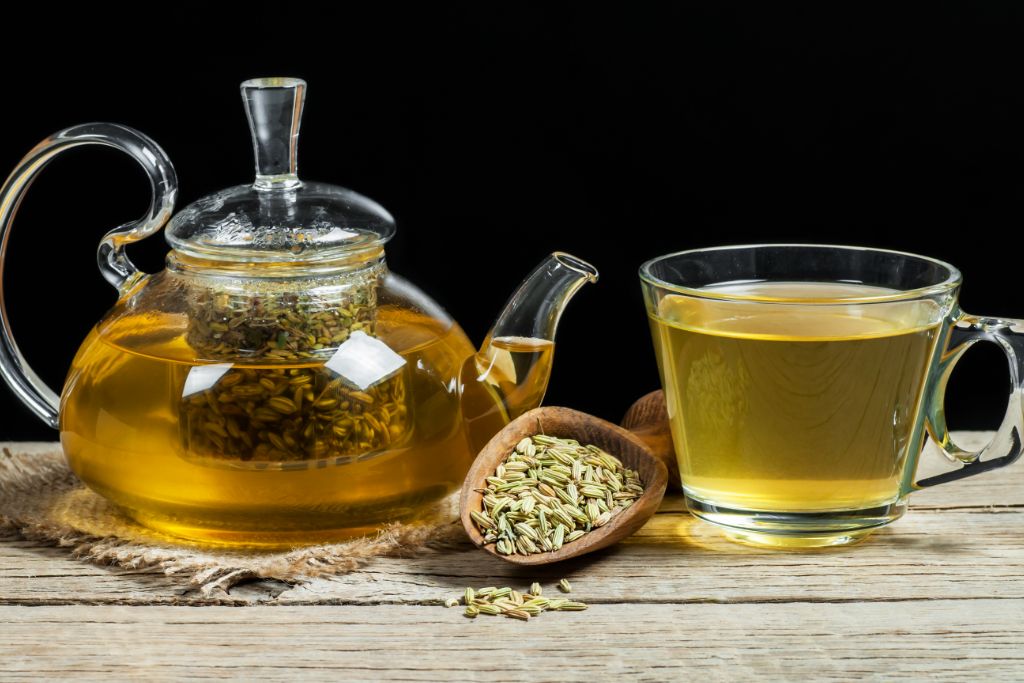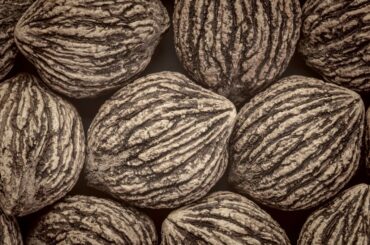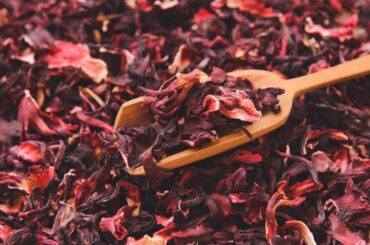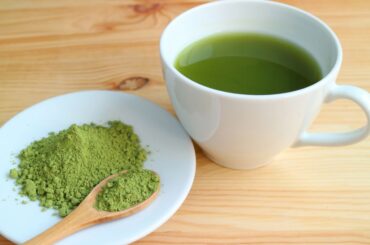Do soothing, fragrant herbal teas appeal to your sense of relaxation? Are you able to prepare a delicious fennel tea? With this comprehensive guide, you can create fennel tea in the comfort of your own home.
You can make your fennel tea with the steps in this guide. Check out our simple fennel tea recipe. It’s great for tea lovers and people new to green tea. Let’s jump in and make some healthy tea!
What is Fennel Tea?
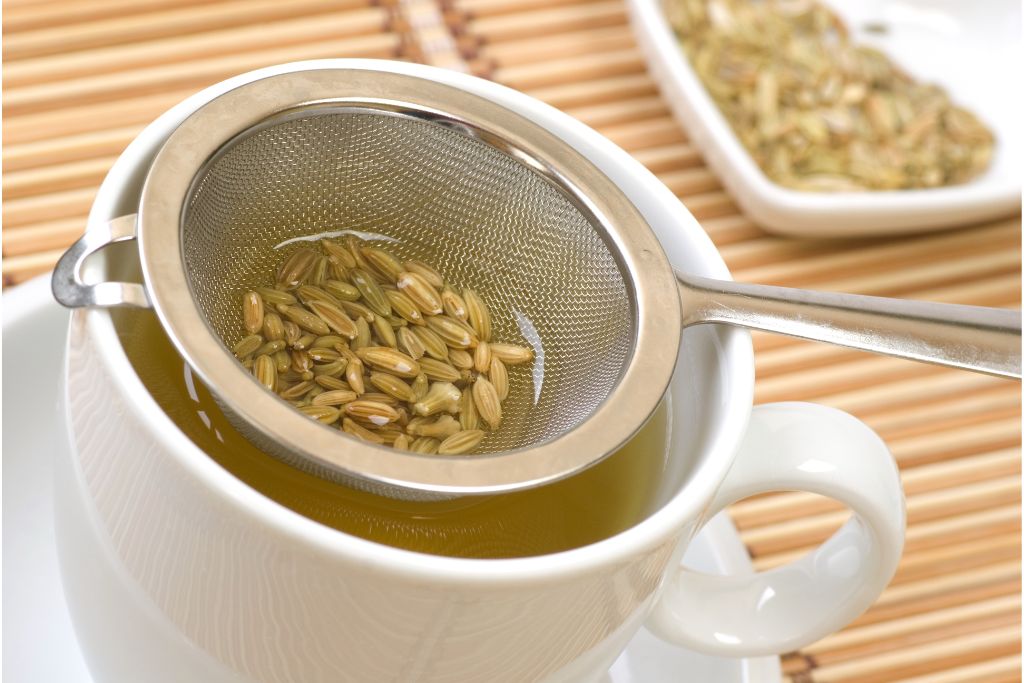
Fennel tea is a tasty herbal drink that has existed since Ancient Mediterranean civilizations. Its popularity soared in Italy and Greece in particular. The green, feathery seeds of the fennel plant are used to prepare this soothing beverage.
The fennel seeds in this beverage are soaked in hot water, creating a comforting and aromatic drink. The finished tea has a subtle flavor with notes of anise or licorice and is mildly sweet.
What Does Fennel Tea Taste Like?
Fennel tea has a unique and tasty flavor. This has a soft finish and tastes like black licorice candy. It tastes like anise or licorice and is sweet. This tea is not sour; it is soothing and relaxed.
People who like mild drinks that are naturally sweet will enjoy this plant tea. Whoever wants a soothing tea without intense flavors can choose this one because of its excellent and unique taste.
What is Fennel Tea Good for?
Fennel tea benefits are numerous. As a first benefit, it aids digestion by reducing gas and stomach pain. Indigestion and heartburn are two common conditions that benefit from this.
Those seeking a caffeine-free beverage to aid in relaxation before bedtime should consider consuming this tea.
Fennel Tea Ingredients
Soothing fennel tea can be prepared with simple components, so let’s get to know them. I’ll list eight essentials for preparing tea and tell you whether you need them.
1. Fennel Seeds
The star of the show, these are the primary and most essential ingredients that give your tea its sweet anise flavor.
2. Water
It is required, without a doubt. The clean water necessary to make tea is readily available in your kitchen.
3. Honey (Optional)
Enhance your tea’s taste by just putting honey in it. Feel free to customize it as you like.
4. Lemon (Optional)
Some people like their tea with a hint of lemon. You can add lemon to make your drink taste more refreshing.
5. Ginger (Optional)
If you like things on the spicy side, try adding some ginger to your fennel tea. The decision relies on the individual making it.
6. Cinnamon (Optional)
Cinnamon enhances the flavor of tea, but it is not required.
7. Peppermint (Optional)
Peppermint is an optional addition that can add a minty freshness. It’s great for people who like their tea cool and refreshing.
8. Fennel Leaves (Optional)
Tea can improve flavor and appearance by using fennel leaves as a garnish.
How to Prepare Fennel Tea
1. Gather Your Ingredients
Get your fennel seeds, water, and any extras, like fennel leaves, honey, lemon, ginger, cinnamon, or peppermint.
2. Measure Fennel Seeds
Simply one teaspoon of fennel seeds is sufficient to impart flavor to tea. If you alter the total quantity, the corresponding cup change will occur.
3. Boil Water
Get some water boiling in a pot. To make fennel tea, use a temperature between 194 and 203℉ (90 and 95℃). Whether or not it boils, wait a minute before attempting to chill it.
4. Add Fennel Seeds
Add the fennel seeds as soon as the water in your cup boils. To keep the seeds out of your tea, use a tea bag or a filter in the pot.
5. Pour Hot Water
Carefully add the boiling water to the teacup containing the fennel seeds. Let it steep in a covered saucer for a while.
6. Steep
Fennel seeds must be soaked in boiling water for at least five minutes and up to ten. How strong you want the flavor can change how long you steep. A more pungent taste comes from steeping it for longer.
7. Strain (If Necessary)
If you didn’t use a tea infuser or strainer, strain the tea to remove the fennel seeds or other additions.
8. Serve
The tea is ready when it can be poured into a cup and drunk. It has a beautiful flavor, both heated and cold.
9. Optional Garnish
You can add fresh fennel leaves to your tea if you’d like to add more taste and scent.
Tips for Making Fennel Tea
Let’s ensure you have the best advice for making a great cup of fennel tea before we get into the five most essential tips.
Choose Quality Fennel Seeds
A tasty cup of fennel tea requires high-quality seeds. Fennel seeds should be plump, solid, and deep green or brown. Shriveled or discolored roots may have poor flavor. Fennel seeds should be purchased from a trusted supplier to ensure freshness and quality for your tea. High-quality seeds offer fennel tea a calming, aromatic, and authentic flavor.
Properly Store Fennel Seeds
Fennel seeds can keep their healing qualities long if they are correctly stored. Seeds for pickles should be kept in a jar that doesn’t let air in. To keep the seeds’ flavor, put them somewhere cool and dark. Not only will fennel seeds keep their flavor and smell if you store them correctly, but you can even add them to tea.
Measure Accurately
A balanced fennel tea requires measuring the proper amount of seeds. Fennel seeds should be used one teaspoon per cup of tea. This proportion gives your tea the ideal fennel taste for a delightful and restful drink. For the perfect fennel tea, adjust the quantity based on the number of cups you plan to prepare.
Cover While Steeping
Cover your cup or teapot with a lid or saucer when steeping fennel tea. This prevents aromatic oils and tastes from escaping. Covering it keeps the scent and flavor of fennel tea, making it more enjoyable to drink. To get the most incredible taste and smell, cover your tea while steeping.
Adjust Steeping Time
How long you let the fennel seeds soak in hot water is up to you. Let fennel tea steep for 5 to 10 minutes. More robust flavor and scent are produced by the tea that has been steeped longer than its counterpart.
Reduce the steeping time for a milder flavor. For a more spicy taste, steep for more time. This lets you make fennel tea with the taste you like best.
Fennel Tea Nutritional Facts
Let us talk about how healthy we think a regular cup of fennel tea is. The values indicated below are just estimations. The quantity of each ingredient is influenced by variables such as the fennel seed kind.
- Calories: 2 to 5 cal
- Carbohydrates: 0 to 1 g
- Protein: 1 g
- Fat: 0 g
- Saturated Fat: 0 g
- Cholesterol: 0
- Sodium: 0
- Sugar: 1 g
- Vitamin and Calcium: Minimal to none
Disclaimer: Adding more sugar or whole milk will increase the beverage’s calorie and sugar content. Nevertheless, an abundance of nutrients in fennel tea might be good for your health.
Fennel Tea Benefits
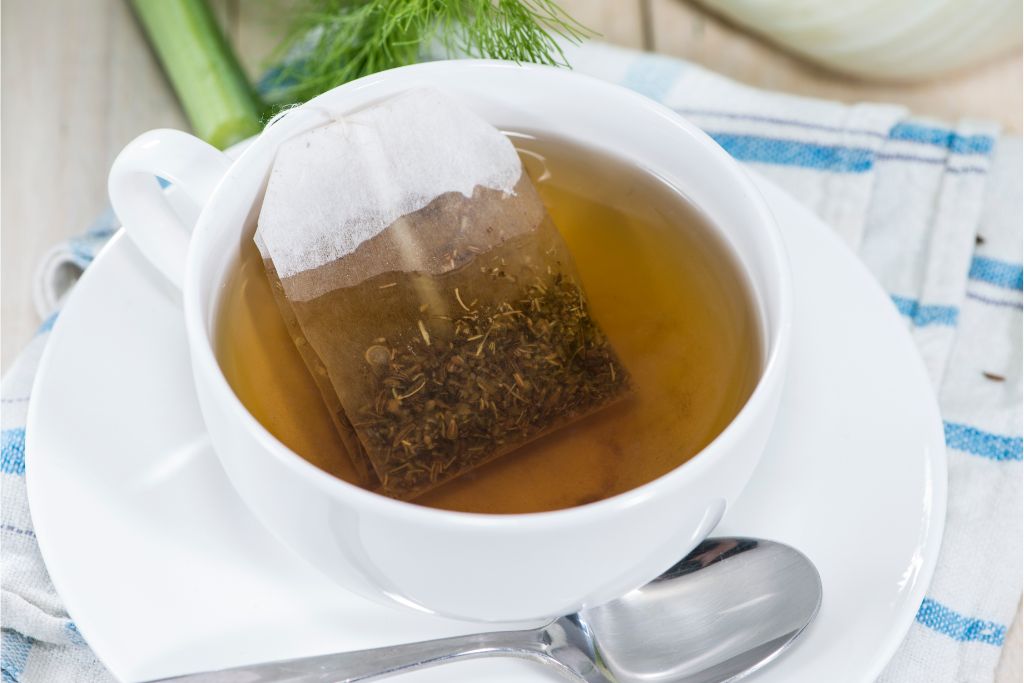
Before we go into the numerous health benefits of fennel tea, let’s examine what sets it apart. Both the medicinal and flavorful qualities of fennel tea have been much praised.
Digestive Aid
Fennel tea is commonly consumed for its potential digestive advantages. For hundreds of years, people have relied on it to alleviate gas, bloating, and heartburn. This is the optimal step after a large meal when digestion has slowed.
Calming Properties
Fennel tea’s calming properties make it a popular beverage for soothing upset stomachs and winding down. This tea has been demonstrated to reduce stress. It’s beneficial and soothes an upset stomach. This is an excellent choice for a relaxing drink.
Anti-Inflammatory
Fennel tea might help with pain and swelling. It has natural chemicals in it that may benefit arthritis by reducing inflammation. Even though it’s not a replacement for medical care, fennel tea may help people with inflammation problems feel better.
Weight Management
This tea may be helpful if you’re trying to lose weight. Dieters will appreciate the low-calorie content. Combining a nutritious diet and regular exercise, including fennel tea, may help you shed unwanted pounds.
Rich in Antioxidants
The flavonoids in fennel tea help shield cells from free radical damage. Consuming meals high in antioxidants may lower the chance of getting chronic diseases. Because it includes antioxidants, fennel tea is both tasty and healthy.
Respiratory Health
Fennel tea has been noted by some to enhance lung function. For congestion or a sore throat, self-treatment is preferable to seeking medical care. This can aid in relieving nasal blockage during a cold or respiratory ailment.
Menstrual Relief
Some women may feel better when they sip fennel tea during their periods. Fennel may help you relax and reduce pain during your period. Some natural period problems may be helped by fennel tea.
Caffeine-Free Relaxation
Fennel tea is caffeine-free and relaxing. It’s ideal for relaxing before bed or for a peaceful drink. It is a relaxing option for caffeine-sensitive people or those who desire a quiet tea experience.
FAQs
What is Fennel Tea Good for?
Fennel tea’s benefits are numerous. It can quiet you down without coffee while aiding digestion, reducing bloating, easing menstrual discomfort, and protecting the lungs.
What Fennel Tea Side Effects are There?
Most people think fennel tea is safe, but it can cause medicine interactions, skin irritation, and allergic responses. Be careful, as with anything. If you’re worried about your health, see a doctor.
Should Fennel Tea be Consumed While on an Empty Stomach?
Yes, fennel tea is safe to drink before a meal. Taking it before a meal has improved digestion and eased stomach distress.

